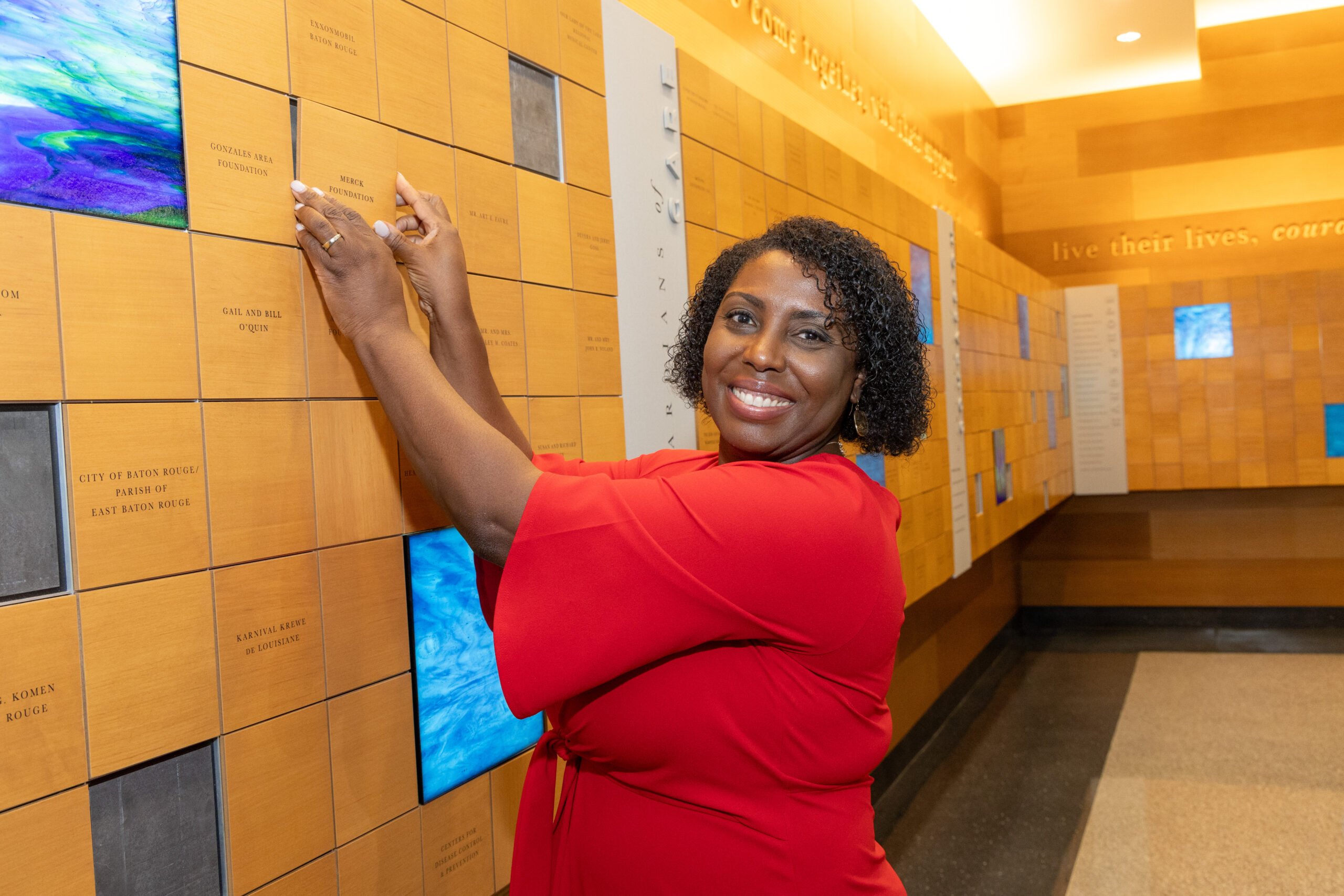When a patient is diagnosed with cancer, their first worry shouldn’t be, “How will I pay for my care?” But for many people, the cost of the disease and treatment are among the most pressing factors that influence care and outcomes.
Financial toxicity of cancer is a real concern that can impact health. Nearly half of people with cancer in the U.S. go into debt to pay for their care, and 45% of this group delayed or avoided care for serious conditions due to financial strain. The Greater Baton Rouge region has a 24% poverty rate and a significantly lower median income than the U.S. average, meaning people in the local area are even more susceptible to financial pressures that come with a cancer diagnosis.
Mary Bird Perkins Cancer Center believes in high-quality cancer care for all. Through the direct and indirect effects of grants, and especially its patient navigation program, the Cancer Center treats all patients regardless of their financial resources.

Patient navigators make a key difference
One of the approaches Mary Bird Perkins helps those in financial need is through patient navigators. This team provides patients and families with support navigating financial and other social services from day one of a patient’s diagnosis through treatment appointments and follow-up visits. Through the locally-funded Patient Compassion Program, Mary Bird Perkins’ cancer navigators are connecting more families with resources to access high-quality cancer care.
“No one should have to choose between affording cancer care and supporting their families,” said Nicole Honoré, program manager, equity in cancer care. “The funding and cancer navigation services are in place to help patients who are underserved have a chance at better outcomes from treatment.”
From the start of a patient’s cancer journey, navigators connect families and patients with stress-reducing resources such as:
- Financial support: Navigators work with financial counselors to connect patients with funding from generous donors to cover costs such as transportation (including gas), utility costs, medication, and co-pays during treatment.
- Transportation Assistance: Navigators coordinate transportation for patients and families to and from cancer treatments.
- Nutrition resources: At some Cancer Center locations, patients can access a food pantry stocked with fresh produce and healthy frozen and shelf-stable foods.
- Scheduling services: From treatment through follow-up, patients see multiple providers, sometimes at various locations. Navigators help schedule these visits to reduce travel and optimize patients’ time.
- Answers to questions: Navigators help guide patients and their family members as their lives change over the course of treatment, new medical terms are introduced, and treatment progresses.
“When a patient gets a cancer diagnosis, the emotional toll and amount of information shared—including details about support services—can be overwhelming,” said Honore’. “Having someone there from the start to help guide patients is a tremendous resource so they can focus on recovery and toward survivorship.”
Related reading: How Cancer Patient Navigators Guide Families from Diagnosis Through Recovery
Community impacts against cancer’s financial toxicity
Mary Bird Perkins Cancer Center also works on making cancer care more equitable through its $2 million Alliance for Equity in Cancer Care grant. This initiative is funded by the Merck Foundation and largely focuses on the underserved area of North Baton Rouge. It allows the Cancer Center to connect more patients with services to lessen their burden, including financial concerns during treatment.
“Through the Alliance grant, we have added a team of nurse navigators, social workers, dietitians, and transportation coordinators that helps seek additional resources for patients,” said Honore.
The grant also enables the program to host community listening sessions in targeted areas of North Baton Rouge, which Honore’ says is one of the most rewarding parts of her job.
“When we go into the communities, we ask, ‘How many of you have been impacted by cancer?’ When those hands go up, it shows that cancer doesn’t discriminate,” she said.
Through eight spring community listening sessions held in 2023, more than 80% of attendees identified financial toxicity as a significant barrier to care. Certain communities are already disproportionately impacted by chronic illness due to factors including family history, low health literacy, lack of insurance and limited transportation resources. When these communities are faced with cancer, the financial situation becomes even more dire—and they become more vulnerable to poor outcomes.
Over the past year, Mary Bird Perkins has coordinated more than $18,000 of transportation services for patients targeted in the Alliance grant. This demonstrates a real need for transportation assistance as a part of cancer care support.
Related reading: Easing the Financial Toxicity of Cancer
Reducing cancer care inequity at home
“Through the Patient Compassion Program and the Alliance grant, we’ve developed a model program for patient navigation to help lessen that burden of care for patients,” said Honore’. “Addressing financial toxicity of cancer treatment is an essential step toward achieving equitable care.”
To learn how you can help support patient services along with other generous donors, visit marybird.org/giving. At Mary Bird Perkins Cancer Center, no patient is ever turned away due to inability to pay.

